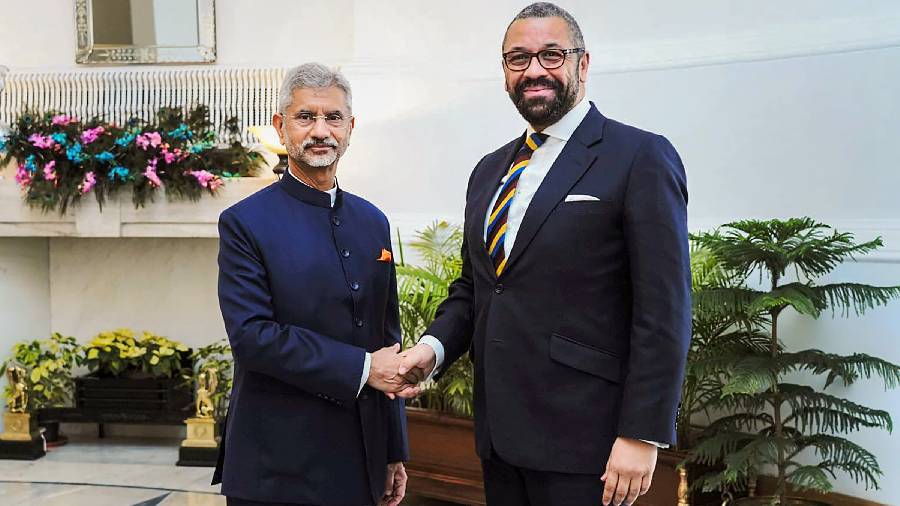British foreign secretary James Cleverly on Wednesday “raised” with his Indian counterpart S. Jaishankar the income tax “searches” at the BBC offices in Delhi and Mumbai last month.
Indian sources said that when Cleverly brought the matter up, “he was firmly told that all entities operating in India must comply fully with relevant laws and regulations”.
The exchange took place when Cleverly and Jaishankar met for a bilateral engagement ahead of the G20 foreign ministers’ meeting in New Delhi.
In response to a question, Cleverly told Reuters that “I did raise it”. There was no official word from the Indian side.
Jaishankar made no mention of this in his tweet earlier in the day on his bilateral engagement with Cleverly: “Began the morning with a bilateral meeting with Foreign Secretary @JamesCleverly of the UK. Reviewed the progress in our relationship since our last discussion. Noted in particular the commencement of the Young Professional Scheme. Also exchanged views on the global situation as well as the G20 agenda.”
The Reuters news agency reported that Cleverly did not go into the details of what he said about the tax searches on the BBC.
“The conversations I had with him are best to keep with him. I did raise it,’’ Cleverly was quoted as saying. “One of the advantages of having such a strong and professional relationship with Dr Jaishankar is I am able to bring up, and indeed he brings up with me, some of these sensitive issues. I did raise it with him.”
Cleverly said that the vast bulk of the conversation was about the positive bilateral work. The hallmark of a positive relationship, he said, “is that you can discuss the sensitive and difficult issues and it doesn’t derail us from talking about the really, really positive agenda that we are both hoping to pursue”.
Asked if there were concerns about civil liberties in India, Cleverly said: “We want to ensure that values that both our countries feel strongly about are upheld. That means working together on a range of issues.”
The BBC has been in the crosshairs of the Modi government since the beginning of the year after it aired a two-part documentary India: The Modi Question, which examined his role as chief minister during the 2002 Gujarat riots and later as Prime Minister.
The Modi government has said that the searches were not related to the documentary.
After Prime Minister Rishi Sunak sought to distance his administration from the documentary, the British government had said in the House of Commons on February 21 that “we stand up for the BBC, we fund the BBC, we think the BBC World Service is vitally important”.
Responding to an “urgent question” on the tax searches, the British parliamentary undersecretary of state for the UK Foreign, Commonwealth and Development Office, David Rutley, had underscored that the BBC criticises the Conservative Party and the Labour Party.
“It has that freedom which we believe is vitally important and that freedom is key. We want to be able to communicate the importance of that with our colleagues and our friends across the world, including the government in India,” Rutley had said.











